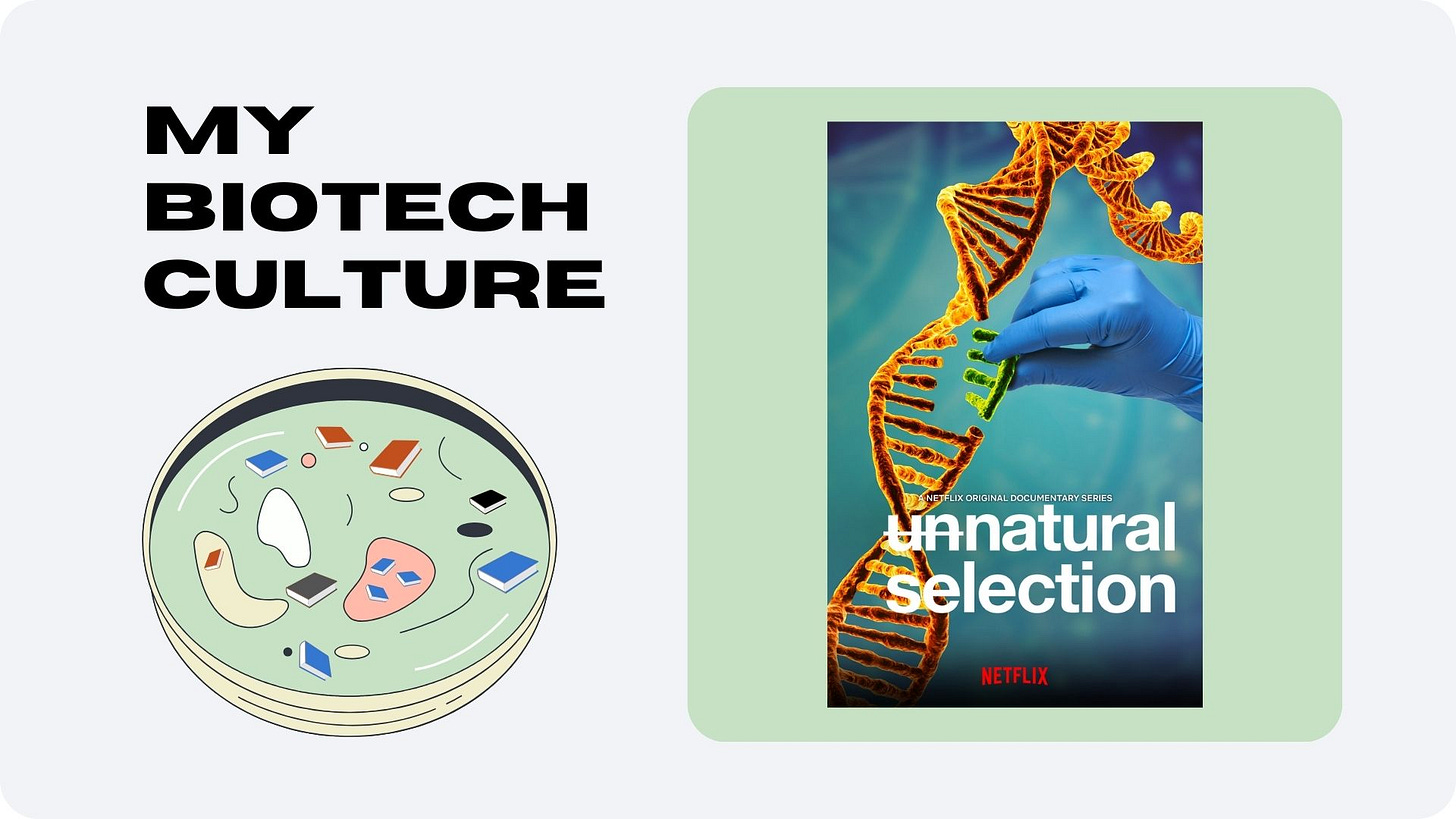My BioTech Culture #3 - UnNatural Selection
A highly bingable docuseries about genetic engineering.
After a decade of mastering math and AI, I ventured into BioTech.
My BioTech Culture is a collection of content I consume to help my techy brain cells grow outside their natural environment.
It was a sunny Saturday morning, and the beach was calling me, but all I wanted to do was stay home and binge… So I thought to myself, “I just started my path in biotech, might as well use this binging atmosphere for something useful!”. And indeed I did. Luckily I stumbled upon this captivating series, and my butt didn’t leave the couch until I finished watching all four episodes 🫣
[Don’t worry, no spoilers!]
Unnatural selection left me thinking about one major topic - the democratization of science. Growing up, I believed that science was a profession reserved for institutions. Sure, we had playful chemistry kits, but inventing or discovering something entirely new? That, I thought, was only for the educated experts. However, as I've come to realize, this isn’t the case. It never was. With the information revolution now fully integrated into the industrial world, we're witnessing the peak of science democratization. Some capabilities remain exclusive to the wealthy or very well-funded, but these are becoming increasingly rare.
This series captures one such capability as it’s being democratized - genetic engineering.
In a nutshell, CRISPR and Cas9 are two pieces of genetic code that, when combined, can edit the DNA of a living cell within the body. Our DNA is like a giant codebase, with different segments performing specific functions, and these two pieces of code together can edit the code while it’s running inside our bodies. Nowadays, it's relatively inexpensive to synthesize short pieces of code, making CRISPR and Cas9 accessible too. Connect the dots, and you'll see that virtually anyone can order a piece of genetic code over the internet capable of editing a living genome.
Unnatural Selection delves into exactly this. What's happening in the world now that gene editing has become so accessible? What are pharmaceutical companies developing in their labs and what are they bringing to market? What are private biohackers doing at home? What about researchers and environmentalists bringing these innovations to nature? Who decides what's moral and what defines the new morality?
So many questions!
Here's one small spoiler - this series doesn't offer any definitive answers.
And that's what I think I liked most about it. I felt educated and informed (even though it aired pre-covid… it’s so strange to watch stuff from pre-covid!), my curiosity and wonder were tingled, but I wasn’t lectured to or judged. The conclusions are mine to draw.
That’s it for today. Hope you enjoyed reading, and please let me know if you have further recommendations for me as well!


